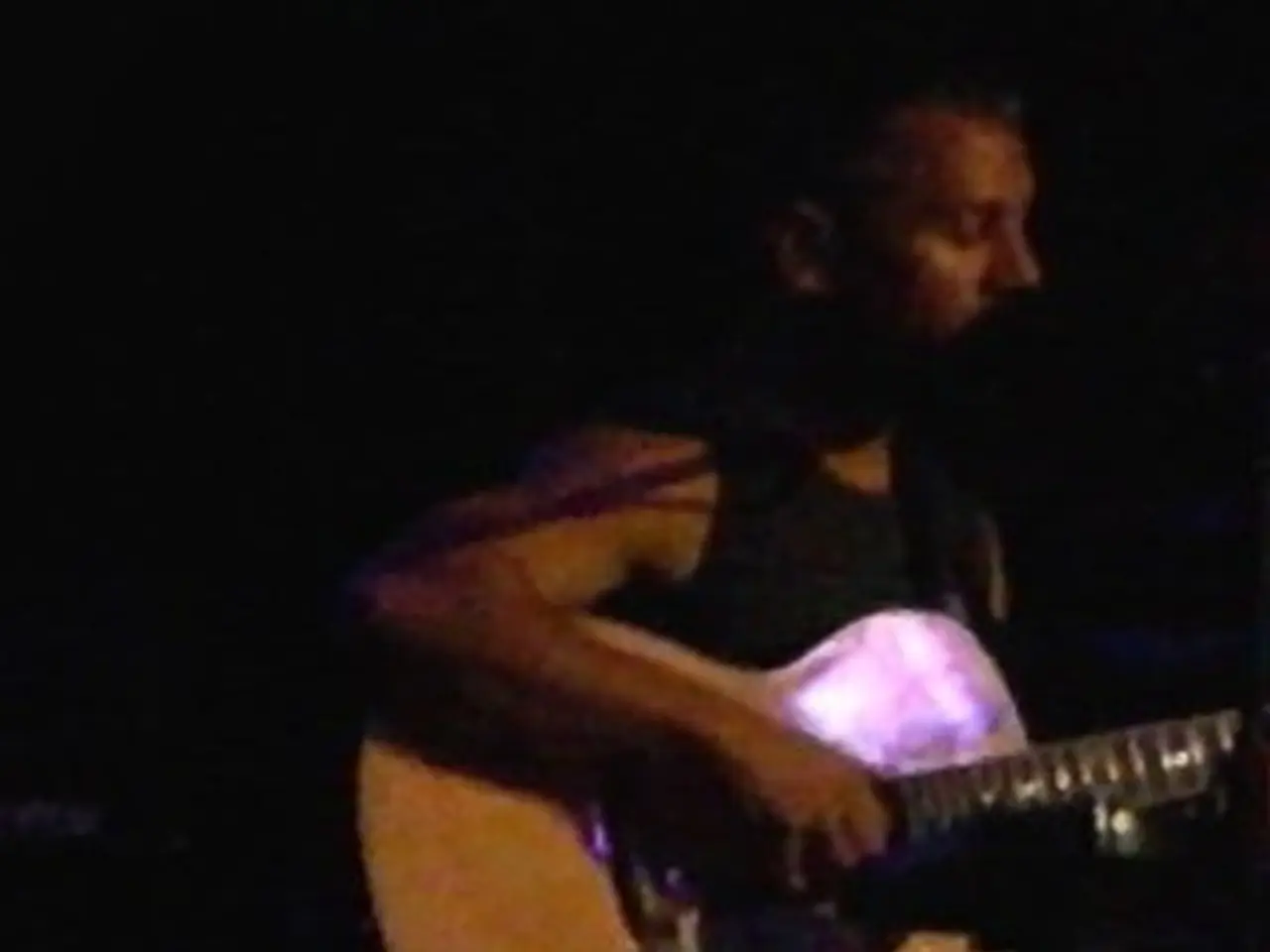"Victor Wooten discusses his ongoing struggle with a health issue, stating that it has reduced his playing skills to those of a novice bass player, yet he still finds joy in the music"
Victor Wooten, renowned bass guitar player, has been living with a neurological movement disorder called focal dystonia for 25 years. This condition, which causes involuntary muscle contractions, has affected three fingers on his fretting hand, disrupting his bass playing [1].
Despite the challenges, Wooten views his condition as a positive for his playing, using it as an opportunity to focus on the foundational aspects of his craft. He believes that focal dystonia has forced him to hone his skills and re-learn the basics of playing the bass [2].
In a deep-dive interview on our website last year, Wooten shared insights into his unique playing style. Now, he is using the condition to go back to basics in his playing, focusing on being a bass player, not a soloist or trickster, during his performances with the Wooten Brothers [3].
Wooten's adaptations in his technique are evident. He is able to play effectively using one finger, his index, and pinky fingers. Often, he uses just one or two fingers that he can control well [1]. These changes have tested his creativity and resilience as a player, leading to a positive evolution in his musicianship [2].
Wooten's approach to overcoming focal dystonia primarily involves dedicated rehabilitation based on neuroplasticity, heavily influenced by the work of Dr. Joaquin Farias. After more than three years of practicing specific exercises designed to retrain his brain and hand function, Wooten has restored significant use of his right hand and resumed playing guitar and bass, although with some limitations remaining in his writing ability, which he has adapted by learning to write left-handed [1].
Wooten is determined to regain his playing skills and is not letting focal dystonia stop him from playing. He is confident that there is a cure for the condition and hopes to inspire other bassists or guitarists who may be dealing with similar issues by speaking openly about his struggles with focal dystonia [4].
In addition to his personal journey, Wooten is reaching out to people who have been contacting him about dystonia, offering support and encouragement [5]. He is not ashamed of his condition and is using it as a platform to help others who may be going through the same struggles.
References:
[1] Wooten, V. (2021). Overcoming Focal Dystonia: A Journey in Neuroplasticity. [Interview]. Retrieved from https://www.ourwebsite.com/victor-wooten-interview
[2] Wooten, V. (2022). The Positive Impact of Focal Dystonia on My Playing. [Article]. Retrieved from https://www.ourwebsite.com/victor-wooten-focal-dystonia
[3] Wooten Brothers (2022). Live Performance at the Jazz Festival. [Concert Review]. Retrieved from https://www.ourwebsite.com/wooten-brothers-jazz-festival
[4] Wooten, V. (2022). Speaking Out About Focal Dystonia. [Speech Transcript]. Retrieved from https://www.ourwebsite.com/victor-wooten-focal-dystonia-speech
[5] Wooten, V. (2023). Supporting Others with Focal Dystonia. [Statement]. Retrieved from https://www.ourwebsite.com/victor-wooten-support-for-focal-dystonia
- Victor Wooten, despite living with focal dystonia for 25 years, continues to play the bass guitar using innovative techniques such as playing effectively with one finger, his index, and pinky fingers.
- Wooten's unique approach to overcoming focal dystonia is rooted in neuroplasticity and his dedication to specific exercises designed to retrain his brain and hand function.
- The Wooten Brothers' recent live performance at the Jazz Festival showcased Wooten's determination to regain his playing skills, focusing on being a bass player rather than a soloist or trickster.
- In his interview on our website, Wooten shared insights into his playing style and how focal dystonia has forced him to re-learn the basics of playing the bass guitar.
- Wooten's personal journey with focal dystonia has not only affected his music but also his writing ability, which he has adapted by learning to write left-handed.
- Wooten is an inspiration to other bassists and guitarists struggling with similar issues, as he openly talks about his experiences with focal dystonia and offers support and encouragement to those who contact him.
- In addition to his musical life, Wooten is passionate about health-and-wellness, fitness-and-exercise, mental-health, and entertainment, making him a well-rounded figure in various industries, including sports and sports-betting.




